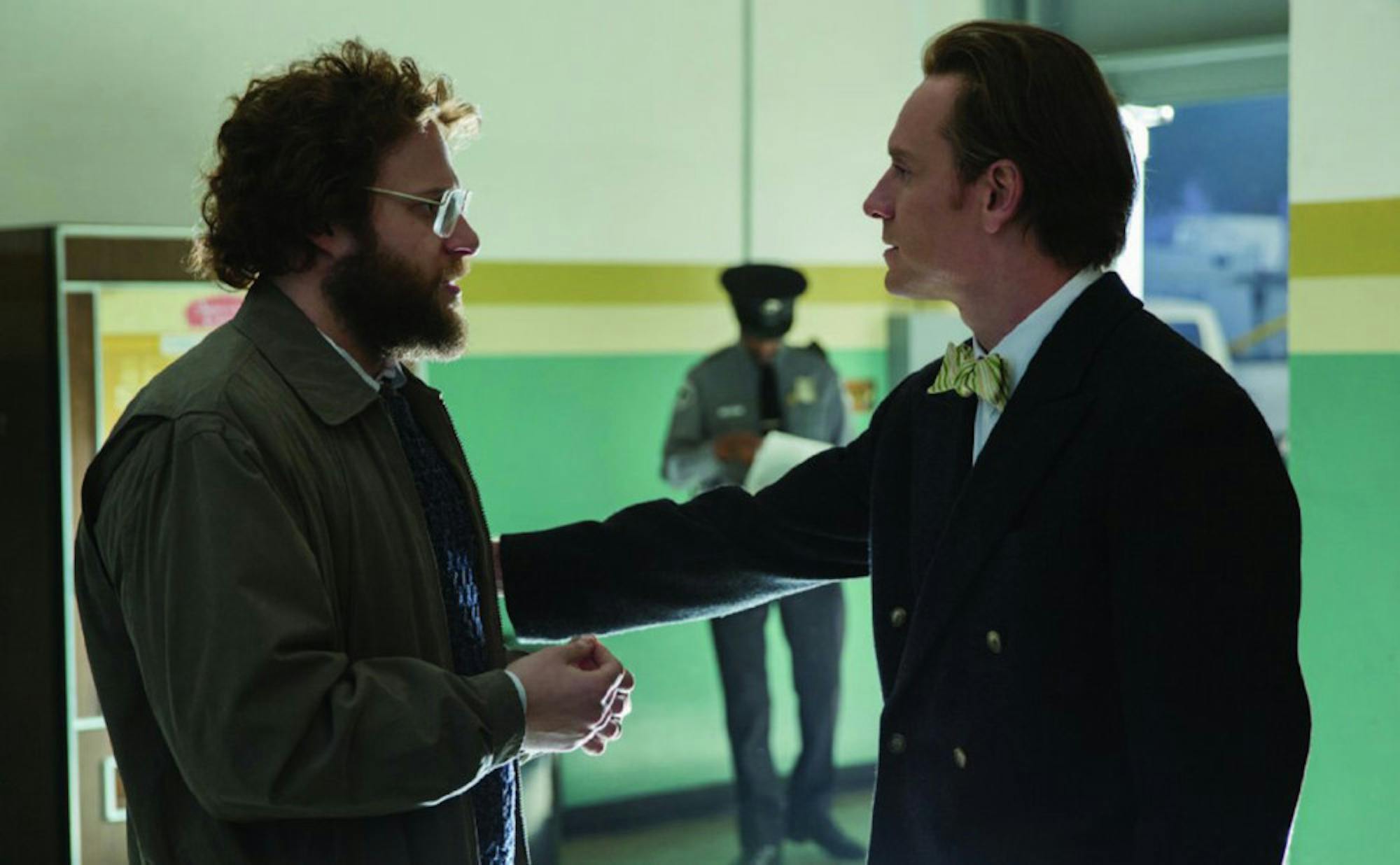One surprise of "Steve Jobs," released on Oct. 9, is how much it -- and its enigmatic subject, portrayed brilliantly by an often detestable Michael Fassbender -- dwells on the past. This is Steve Jobs, after all, a man who arguably had more of a hand in shaping "the future" than any other tech executive in the past 30 years. And yet, from time to time, the eponymous hero is seized by painful remembrances, sometimes depicted in a brief flicker across the screen.
This choice of portrayal might sound like a drag, but the good news is that flashbacks do not figure prominently in the narrative of "Steve Jobs." The film, directed by Danny Boyle, charts Jobs' trajectory in three identically structured acts -- the first in 1984, in the minutes leading up to the official launch of the original Macintosh personal computer; the second in 1989, after Jobs has been thrown out by Apple’s board and is about to introduce NeXT, a computer tailored to the education sector; and the third in 1999, after Jobs’ return to Apple and on the eve of the iMac rollout.
By an implausible narrative contrivance, each act is packed with drama, and throughout the film Jobs struggles to keep all the disparate elements of his life from collapsing in on him before he can debut his new product. His daughter Lisa (played movingly by Makenzie Moss, Ripley Sobo and Perla Haney-Jardine, in that order) shows up with her mother (Katherine Waterston) to beg for his generosity. Former business partner and friend Steve Wozniak (an impressive Seth Rogen) questions Jobs' genius and punctures his ego. Jobs' mentor John Sculley (Jeff Daniels), whom he lured over to Apple from Pepsi-Cola, drops by just as Jobs is about to present NeXT -- a sudden appearance that dredges up some long-buried resentment. Meanwhile, his professional confidante Joanna Hoffman (Kate Winslet) floats around the periphery of these conflicts, seldom inserting herself directly into the fray but always there to provide a check to the turbulent emotions of the man at its center. It’s a testament to the strength of Winslet’s performance that this role never seems gratuitous.
Winslet can’t take all the credit, however. Screenwriter Aaron Sorkin, whose screenplay is based on Walter Isaacson’s 2011 biography of Jobs, furnishes each of his characters with purpose and urgency. All the familiar Sorkin staples are featured: the walk-and-talk, the barb-trading, the biblical references. But the erstwhile screenwriter also manages to rein in some of the more grating tendencies that made his most recent foray into television writing, "The Newsroom" (2012-2014), insufferable. In "Steve Jobs," by contrast, all the characters are fully sketched out, each with their own set of ambitions, insecurities and fears.
Sorkin’s pairing with director Boyle might raise some eyebrows, especially after the smashing success that was "The Social Network" (2010). In that film, director David Fincher’s dark palette perfectly complemented Sorkin’s masterful dialogue. Here, Boyle’s flair for the melodramatic sometimes yanks the focus away from the script, to the film’s detriment. One particularly over-the-top scene shows Jobs and Sculley rehashing Jobs’ ouster from Apple while the orchestral music builds to a feverish crescendo. The sequence finally culminates in the dark boardroom where Jobs’ fate is sealed, heavy rain drumming on the windowpanes in the background. The whole thing makes "The Phantom of the Opera" (2004) look understated.
At other times, though, Boyle demonstrates a deft directorial touch. Some of the early scenes, like the first encounter between Jobs and Lisa, are exquisite. Jobs lies on the couch behind his new Macintosh, and the camera keeps his face obscured from view as he begins speaking in a robotic voice, leaving some ambiguity, for his young daughter especially, as to who is talking -- Jobs or the computer. It’s a wonderful visual moment and recalls a chilling shot in the noir classic "Kiss Me Deadly" (1955), in which the silhouette of the camera merges with Mike Hammer’s (Ralph Meeker) torso, uniting man and machine -- only here, the effect is tender rather than terrifying.
"Steve Jobs" will inevitably draw comparisons to its predecessor, "Jobs" (2013), which committed the cardinal sin of casting Ashton Kutcher in a serious dramatic role. There’s just no comparing the two. "Jobs" was a biopic, in the worst sense of the word. Sappy and sentimental, it seemed more concerned with fortifying the aura of myth surrounding the man than deconstructing it. This is not so with "Steve Jobs." The newer effort shares more cinematic DNA with recent portraits like "The End of the Tour" (2015), a film about writer David Foster Wallace, and "Love & Mercy" (2015), which chronicles the life of Beach Boys co-founder Brian Wilson. By experimenting with narrative conventions, these films have breathed new life into a once-stale genre. "Steve Jobs" does the same thing with its subject: it resuscitates a man ensconced in his own dusty legend and thrusts him back onto the stage so he can take one final bow.
Danny Boyle's 'Steve Jobs' deftly portays flawed Apple executive

Seth Rogen and Michael Fassbender deliver compelling performances in "Steve Jobs."
Summary
Despite its creators' penchant for the dramatic, "Steve Jobs" manages to give a compelling view on a modern icon and does so without reinforcing his myths.
4 Stars





